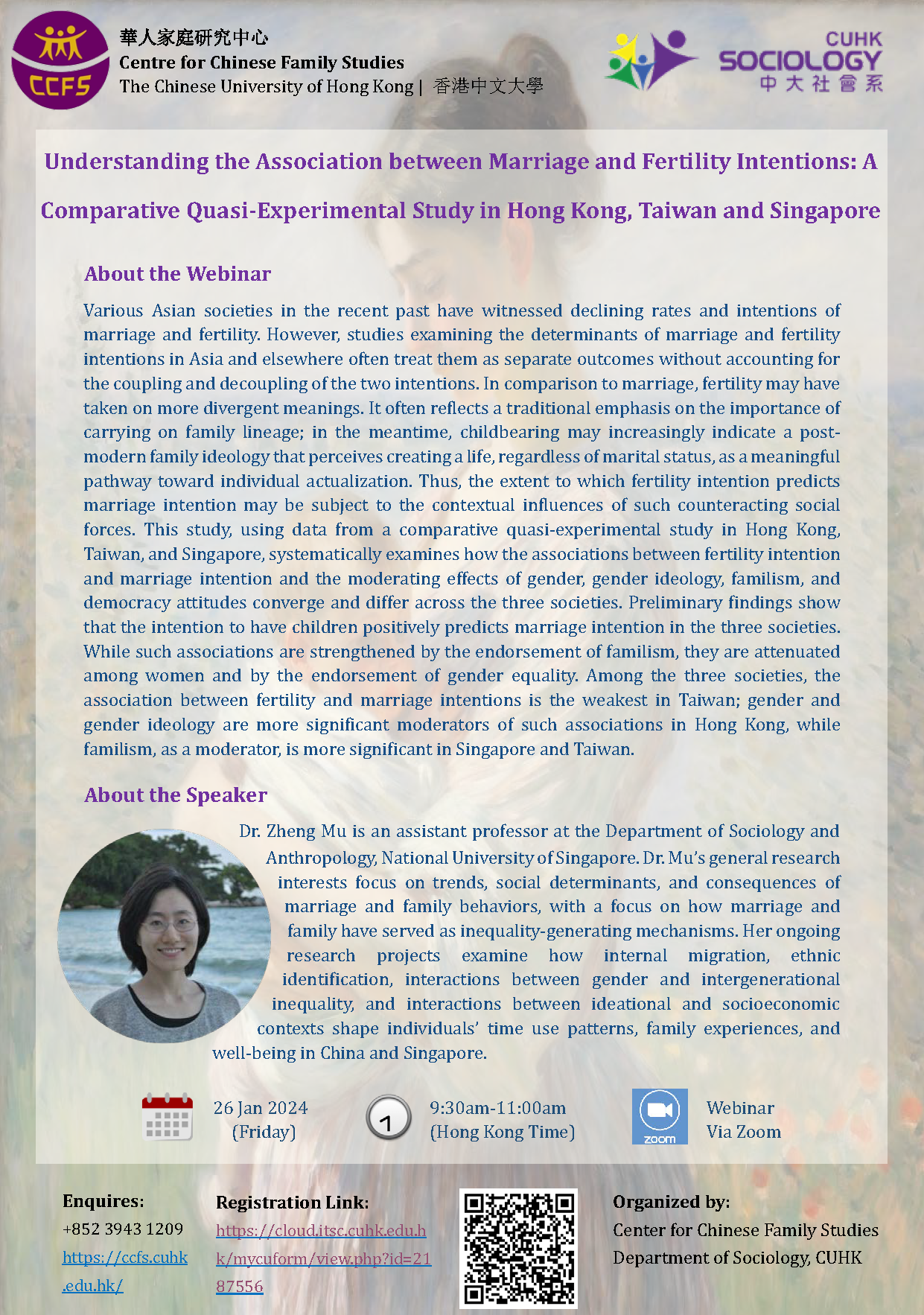Speaker: Dr Zheng Mu (Assistant Professor, Department of Sociology and Anthropology, National University of Singapore)
Date & Time: 26 Jan 2024, 9:30am-11:00am, (Friday, HK Time)
Venue: Zoom (ZOOM Link will be sent to registered audience after finished the e-registration.)
Registration: https://cloud.itsc.cuhk.edu.hk/mycuform/view.php?id=2187556
Details:
About the Webinar: Various Asian societies in the recent past have witnessed declining rates and intentions of marriage and fertility. However, studies examining the determinants of marriage and fertility intentions in Asia and elsewhere often treat them as separate outcomes without accounting for the coupling and decoupling of the two intentions. In comparison to marriage, fertility may have taken on more divergent meanings. It often reflects a traditional emphasis on the importance of carrying on family lineage; in the meantime, childbearing may increasingly indicate a post-modern family ideology that perceives creating a life, regardless of marital status, as a meaningful pathway toward individual actualization. Thus, the extent to which fertility intention predicts marriage intention may be subject to the contextual influences of such counteracting social forces. This study, using data from a comparative quasi-experimental study in Hong Kong, Taiwan, and Singapore, systematically examines how the associations between fertility intention and marriage intention and the moderating effects of gender, gender ideology, familism, and democracy attitudes converge and differ across the three societies. Preliminary findings show that the intention to have children positively predicts marriage intention in the three societies. While such associations are strengthened by the endorsement of familism, they are attenuated among women and by the endorsement of gender equality. Among the three societies, the association between fertility and marriage intentions is the weakest in Taiwan; gender and gender ideology are more significant moderators of such associations in Hong Kong, while familism, as a moderator, is more significant in Singapore and Taiwan.
About the Speaker: Dr. Zheng Mu is an assistant professor at the Department of Sociology and Anthropology, National University of Singapore. Dr. Mu’s general research interests focus on trends, social determinants, and consequences of marriage and family behaviors, with a focus on how marriage and family have served as inequality-generating mechanisms. Her ongoing research projects examine how internal migration, ethnic identification, interactions between gender and intergenerational inequality, and interactions between ideational and socioeconomic contexts shape individuals’ time use patterns, family experiences, and well-being in China and Singapore.

